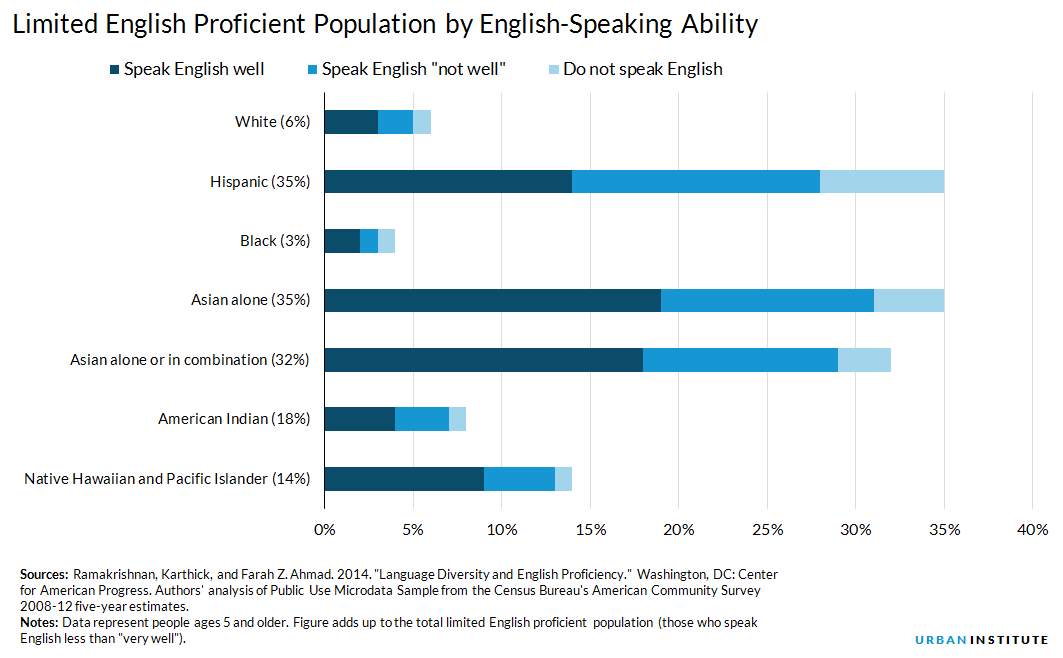
US Immigration and Customs Enforcement officials last week detained hundreds of undocumented immigrants, including at least one who qualifies for the 2012 Deferred Action for Childhood Arrivals (DACA) executive action, prompting emotional reactions from people on both sides of the issue. But public debate about President Trump’s pledge to secure the country’s southern border, cancel DACA, and crack down on illegal immigration often focuses on the large groups of Latinx beneficiaries, overlooking the hundreds of thousands of undocumented Asian American and Pacific Islander (AAPI) families who will also be affected by the president’s immigration actions.
Asian American and Pacific Islanders accounted for about 14 percent of the undocumented immigrant population and 13 percent of immigrants immediately eligible for DACA when the program was announced in 2012. Disproportionately low DACA application rates among potentially eligible AAPIs reflect an urgent need for improved multilingual community outreach and education in all service areas.
Deferred Action for Childhood Arrivals provides work permits, access to higher education, and temporary protection from deportation to over 700,000 youth who arrived in the United States as minors and have lived here since at least 2007. There is a large gap between potential DACA eligibility and DACA applications in the AAPI community. In 2016, only 20 percent of potentially eligible AAPIs sought temporary protection through DACA, versus 77 percent in the Latinx community.
Several factors, including cultural stigma, limited media coverage, and language barriers, contribute to these differences. Although Census data group AAPIs in aggregate, the AAPI community demonstrates wide linguistic diversity, and a significant percentage have limited English speaking skills.
According to a 2014 Center for American Progress report, 35 percent of people who identified as Asian only used a language other than English at home and spoke English “less than very well.” Although the AAPI and the Latinx communities’ needs for interpreted and translated services are similar, AAPI-serving organizations must provide resources in multiple languages, such as Chinese, Tagalog, and Vietnamese, the most commonly spoken languages among AAPIs.

Legal and immigration service providers are not the only ones who need to improve language access for AAPIs in light of recent immigration policy decisions. Housing, education, workforce development, health care, and safety net programs should also build capacity and collaborate to provide translated and interpreted services for those hardest to reach.
The National AAPI DACA Collaborative is a partnership where service providers—including Filipino Advocates for Justice, South Asian Network, Chinese for Affirmative Action, and the National Korean American Services and Education Consortium—consolidate and provide resources in different languages. While many organizations provide information about workshops or other resources online and on social media, they must offer their websites and social media posts in different languages so AAPIs with limited English can more easily access these resources.
Daniel Ramirez, the DACA recipient detained by immigration officials last week, challenged his detention in Seattle earlier this week on the grounds that it violated “his constitutional rights” as someone with work authorization under DACA. Although the outcome is not yet clear, his arrest is a reminder that service providers need to help all immigrants, including AAPIs, gain access to resources and learn their rights in a language they understand.
Tune in and subscribe today.
The Urban Institute podcast, Evidence in Action, inspires changemakers to lead with evidence and act with equity. Cohosted by Urban President Sarah Rosen Wartell and Executive Vice President Kimberlyn Leary, every episode features in-depth discussions with experts and leaders on topics ranging from how to advance equity, to designing innovative solutions that achieve community impact, to what it means to practice evidence-based leadership.